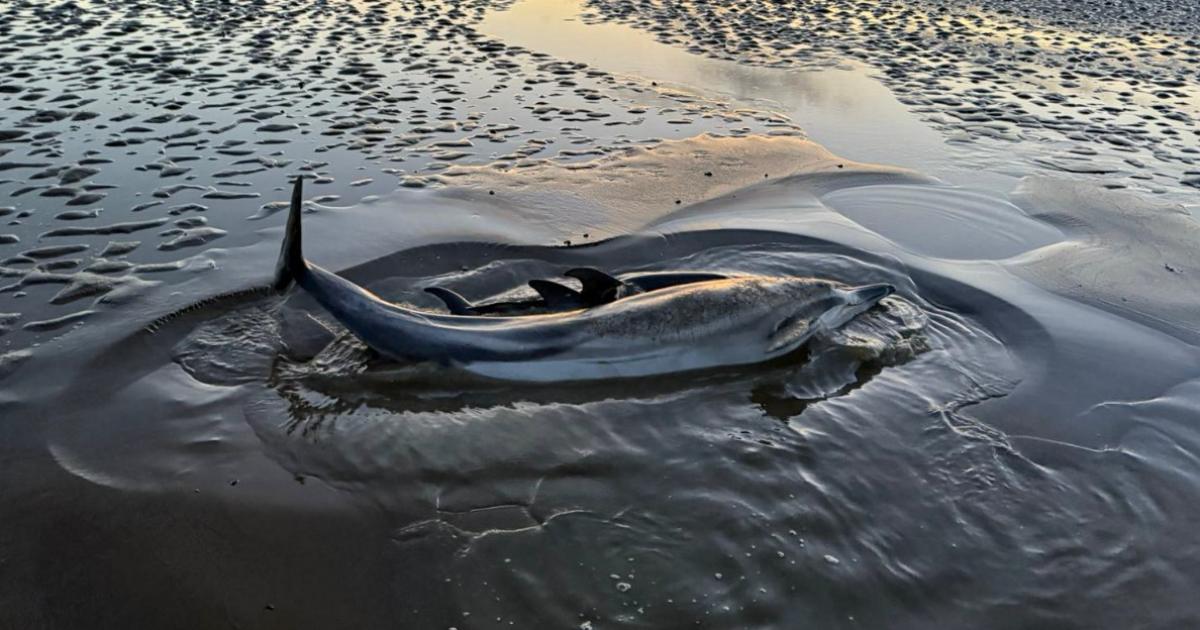On September, 22 British Divers Marine Life Rescue responded to a report of a mass stranding involving four common dolphins on the Cumbrian coast – two adults, a juvenile, and a calf.
Marine Mammal Medics, including a veterinary surgeon from Millcroft, attended the incident with specialist rescue equipment.
Sadly, upon arrival it was confirmed that one adult and the calf had already died. The surviving adult, found stranded beside the deceased calf, was in good condition, while the juvenile had sustained superficial injuries thought to be caused by scavengers.
With safety cover provided by the Maryport Coastguard team, medics worked to stabilise the two live dolphins monitoring their condition, keeping them upright and their skin hydrated.
Although high tide had been forecast for 1am, the flat beach saw water rising earlier and more rapidly than predicted. For safety reasons, the team withdrew from the shoreline as the tide advanced. From a safe distance, they observed as the dolphins refloated on the tide and disappeared into the darkness.
At first light, a Medic revisited the site and found no further stranded dolphins. The body of the deceased adult was recovered for the Cetacean Strandings Investigation Programme (CSIP) to aid research and improve understanding of why strandings occur.
Cetaceans can strand for a variety of reasons. Some may be compromised by illness, disease, injury, entanglement, malnutrition, maternal separation, or age-related conditions. Others may be apparently healthy but strand due to navigational errors, strong social bonds, or disturbance from underwater noise.
The British Diver’s Marine Life Rescue said they ‘would like to thank our volunteer Marine Mammal Medics, Millcroft Vets, and the Maryport Coastguard for their invaluable support during this challenging incident’.

